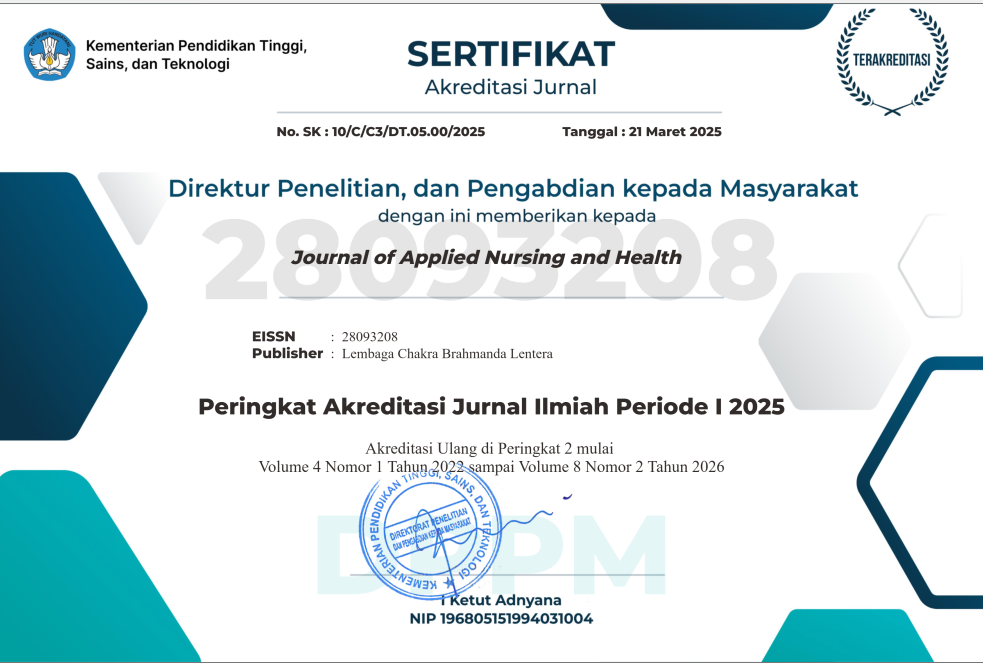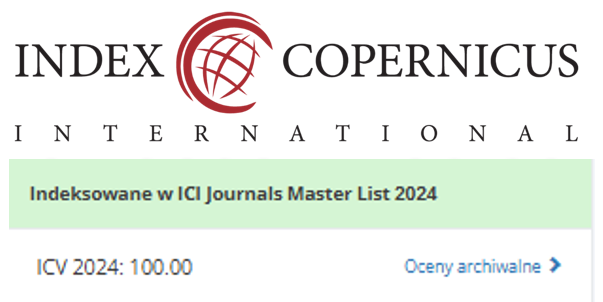The Role Of Parents In Meeting The Basic Physical Needs (Love, Nurture, Hone) Of Children With Down Syndrome In Tunge Village
DOI:
https://doi.org/10.55018/janh.v4i2.115Keywords:
Roles, Parents, Physical Basic Needs, Down SyndromAbstract
Background: Down syndrome is the retardation of physical and mental growth caused by the developmental abnormalities of chromosome 21 that impact physical and mental barriers that experience the barriers of intellectual development and difficulty in adapting to the environment in everyday life. Children with Down syndrome have distinctive acceptable motor characteristics and other characteristics based on the degree of obstacles it has, which are coarse-hand fingers, stiff, weak muscles, emotional conditions that are difficult to guess and poorly restrained, dependence on adults, and often reject others. The research aims to know the parents' role in fulfilling the basic needs of physical (love, nurture, hone) of children with Down syndrome in Tunge village.
Methods: The design of this study uses descriptive, a research population of 16 respondents, and a large sample of 16 respondents with the technique of "total sampling." This research was conducted using a single variable, that is, the role of the parent in fulfillment of basic physical needs (love, nurture, hone) in children with Down Syndrome in village T with instruments in the form of questionnaires then the data is analyzed with percentage and interpreted quantitatively
Results: The results of the study gained that of 16 respondents, half respondents had a good role, eight respondents (50%), nearly half of the respondents had a sufficient role of 7 respondents (44%), and a small fraction of the respondents had a less than one respondent (6%).
Conclusion: It is influenced by several factors namely age, gender, occupation, last education. The results of this study are expected that parents can improve their role in fulfilling the physical basic needs (love, nurture, hone) in children with Down syndrome, and add insight in the process of fulfilling basic physical needs (love, nurture, hone)
Downloads
References
Ahmad. (2014). Manfaat Sumber Belajar Dalam Belajar dan Pembelajaran PAI (Issue 2014).
Amirudin.K.HI.Majid. (2020). Knowledge And Anxiety About The Immunization Effect On Motivation Of Mother Giving Full Basic Immunization. Journal of Applied Nursing and Health, 2(2 SE-Articles), 60–66. https://janh.candle.or.id/index.php/janh/article/view/94
Bussolari, C., Currin-McCulloch, J., Packman, W., Kogan, L., & Erdman, P. (2021). “I couldn’t have asked for a better quarantine partner!”: Experiences with companion dogs during Covid-19. Animals, 11(2), 330.
De Clercq, L., der Kaap-Deeder, V., Dieleman, L. M., Soenens, B., Prinzie, P., & De Pauw, S. S. W. (2019). Parenting and psychosocial development in youth with and without autism spectrum disorder, cerebral palsy, and Down syndrome: A cross-disability comparison. Advances in Neurodevelopmental Disorders, 3(2), 220–234.
Friedman, M. (2010). Buku Ajar Keperawatan keluarga : Riset, Teori, dan Praktek (Edisi ke-5, Issue 2010). EGC.
Frone, M. R., Russell, M., & Cooper, M. L. (1994). Relationship Between Job and Family Satisfaction: Causal or Noncausal Covariation. Journal of Management, 20(3), 565–579. https://doi.org/https://doi.org/10.1016/0149-2063(94)90003-5
Gabel, S. L., & Kotel, K. (2018). Motherhood in the context of normative discourse: Birth stories of mothers of children with Down syndrome. Journal of Medical Humanities, 39(2), 179–193.
Jonh W, S. (2007). Perkembangan anak. Jilid 1 (Edisi 11, Issue 2007). PT. Erlangga.
Ladewig, P., London, M., & Olds, S. (2006). Buku Saku Asuhan Ibu dan Bayi Baru Lahir (Edisi 5, Issue 2006). ECG.
Larkin, F., Hayiou-Thomas, M. E., Arshad, Z., Leonard, M., Williams, F. J., Katseniou, N., Malouta, R. N., Marshall, C. R. P., Diamantopoulou, M., & Tang, E. (2021). Mind-mindedness and stress in parents of children with developmental disorders. Journal of Autism and Developmental Disorders, 51(2), 600–612.
Notoatmodjo, S. (2012). Metodologi Peneiltian Kesehatan (Issue 2012). Rineka Cipta.
Organization, W. H. (2018). Nurturing care for early childhood development: a framework for helping children survive and thrive to transform health and human potential.
Soetjiningsih. (2013). Tumbuh Kembang Anak (Issue 2013). EGC.
Soetjiningsih. (2014). Tumbuh Kembang Anak (Edisi 2, Issue 2014). ECG.
Sosteric, M., & Raktovic, G. (2020). Eupsychian Theory: Reclaiming Maslow and Rejecting The Pyramid-The Seven Essential Needs.
Sugiyono. (2015). Metode Penelitian Pendidikan (Pendekatan Kuantitatif dan Kualitatif, Dan R & D) (Issue 2015). Alfabeta.
Susanandari, D. A. (2009). Gambaran penyesuaian diri ibu dan perkembangan kemampuan anak tunagranda-netra (Issue 2009).
Taiyeb, H. (2016). Kemampuan Motoric Halus Melalui Tehnik Finger Painting Anak Down Syindrome. Jurnal Psikologi Pendidikan & Konseling, 2(2), 93–107.
Wawan, & Dewi. (2011). Teori & pengukuran pengetahuan, sikap dan perilaku manusia (Edisi II, Issue 2011). Nuha Medika.
Wiyani, N. A. (2014). Penanganan Anak Usia Dini Berkebutuhan Khusus (Issue 2014). Ar-Ruzz Media.
Downloads
Published
How to Cite
Issue
Section
License

This work is licensed under a Creative Commons Attribution-ShareAlike 4.0 International License.


















